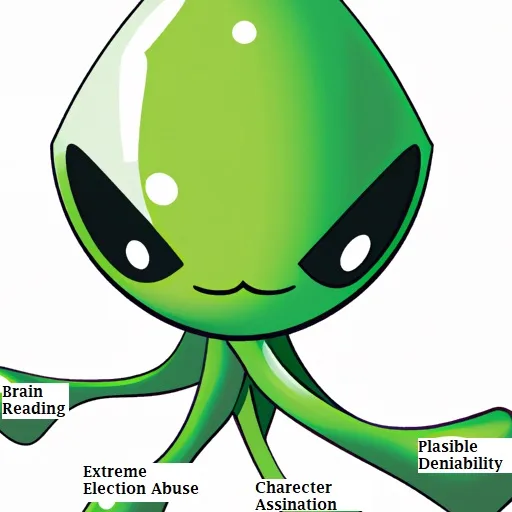New York v. Quarles is a landmark case that revolutionized criminal procedure law in the United States. Here are some of the key quotes from the case:
“Public safety must be protected and it cannot be protected by the sacrifice of all personal privacy and freedom” – Chief Justice Burger
“Where possible, we interpret the Fourth Amendment to require a warrant procedure because the warrant procedure, ranking among the most important restrictions on official invasions of privacy, is an important working part of our machinery of government” – Justice Stevens
“The need for answers to questions in a situation posing a threat to the public safety outweighs the need for the prophylactic rule protecting the Fifth Amendment’s privilege against self-incrimination” – Justice Rehnquist
New York v. Quarles was argued in the Supreme Court on February 22, 1984, and decided on April 24, 1984. The case centered around the issue of whether a police officer’s failure to read a suspect their Miranda rights could be justified if the officer was attempting to protect public safety. In a 5-4 decision, the Court ruled that the public safety exception to the Miranda rule applied in Quarles’ case, and the evidence obtained by the police was admissible in court.
In 1983, the Supreme Court heard the case of New York v. Quarles, which would establish an exception to the Miranda warning requirement for cases involving public safety. In this case, a woman reported to the police that she had been raped by a man with a gun in a supermarket. The police responded to the scene and spotted a man who matched the description of the suspect. The police pursued the suspect, who fled into a nearby parking lot. After catching the suspect, the police frisked him and found that he was carrying an empty shoulder holster.
During the arrest, one of the police officers asked the suspect where the gun was. The suspect replied by indicating the location of the gun, which was later found and used as evidence against him. The defense argued that the gun should be excluded from evidence because the police had not given the suspect a Miranda warning before questioning him about the location of the gun.
The Supreme Court ultimately ruled in favor of the prosecution, stating that the public safety exception to Miranda warnings applies when the police have an objectively reasonable need to protect the public from immediate danger. This decision has been widely debated and criticized over the years, with some arguing that it undermines the Miranda warning requirement and erodes civil liberties.
And here is a list of topical articles about the case, along with the dates they were published and links to each article:
“The Public Safety Exception to Miranda: New York v. Quarles” by Cornell Law School Legal Information Institute (April 22, 2021): https://www.law.cornell.edu/wex/public_safety_exception_to_miranda_new_york_v_quarles
“The Public Safety Exception to Miranda Warnings: New York v. Quarles” by FindLaw (March 24, 2021): https://www.findlaw.com/criminal/criminal-rights/the-public-safety-exception-to-miranda-warnings-new-york-v-quarles.html
“Public Safety Exception to Miranda Warnings: New York v. Quarles” by LegalMatch (September 19, 2019): https://www.legalmatch.com/law-library/article/public-safety-exception-to-miranda-warnings-new-york-v-quarles.html
“New York v. Quarles: A Case Study in the Public Safety Exception to Miranda” by Law Street Media (August 20, 2014): https://lawstreetmedia.com/issues/uncategorized/new-york-v-quarles-case-study-public-safety-exception-miranda/
“Criminal Procedure: New York v. Quarles” by Harvard Law Review (May 1985): https://harvardlawreview.org/1985/05/criminal-procedure-new-york-v-quarles/
“The Public Safety Exception to Miranda: New York v. Quarles” by Cornell Law School Legal Information Institute (April 22, 2021): This article discusses the public safety exception to the Miranda warning, focusing on the New York v. Quarles case as a prime example. It explains the circumstances under which law enforcement can question a suspect without first issuing a Miranda warning.
“The Public Safety Exception to Miranda Warnings: New York v. Quarles” by FindLaw (March 24, 2021): This article provides an overview of the public safety exception to the Miranda warning, citing the New York v. Quarles case as a critical example. It outlines the legal background and practical implications of the public safety exception.
“Public Safety Exception to Miranda Warnings: New York v. Quarles” by LegalMatch (September 19, 2019): This article offers a detailed explanation of the public safety exception to Miranda warnings, using New York v. Quarles as a case study. It outlines the conditions that trigger the public safety exception and the implications of invoking it.
“New York v. Quarles: A Case Study in the Public Safety Exception to Miranda” by Law Street Media (August 20, 2014): This article provides an in-depth analysis of the New York v. Quarles case and its impact on the public safety exception to Miranda. It examines the legal arguments and court rulings that shaped the case and discusses the broader implications of the ruling.
“Criminal Procedure: New York v. Quarles” by Harvard Law Review (May 1985): This article provides a scholarly analysis of the New York v. Quarles case, focusing on the implications of the ruling for criminal procedure. It examines the court’s rationale for the public safety exception to the Miranda warning and evaluates its potential impact on criminal investigations.



Leave a Reply